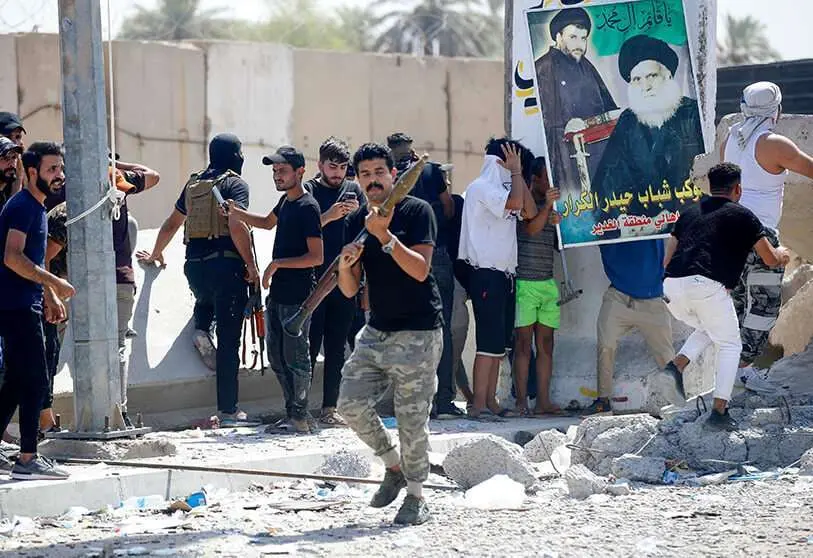Politico-religious tension in Iraq

The incidents that have left dozens dead in Baghdad in recent days - the latest acknowledged figure is 35 - continue to reflect the tension that exists between the two branches of Islam, the majority Sunni and the minority Shia, but with a strong following among the ruling class, and backed by the theocratic regime that rules in neighbouring Iran. The news of the resignation of Shia leader Muqtada al-Sadr, who had a decisive influence on the stability that had been precariously restored after the war, triggered incidents that culminated in an assault on the barriers of the capital's so-called Green Zone, where the headquarters of official bodies and embassies are located, and the occupation of the presidential palace by the masses.
The outbreak of the incidents coincided with the drone strike in Syria, which is also blamed on Iran, the country most zealous and belligerent in defending its regime based on the principles of radical Shiism. It is obvious to add that both incidents are straining relations in the region. The seven months of war between Iraq and Iran under Saddam Hussein have not yet been forgotten, nor does the support that the United States continues to provide to Iraq cease to have any influence. In response to the situation, Iran announced the closure of all its borders with Iraq.
The seriousness of last weekend's incidents has resulted in dozens of deaths, as I said, and hundreds of injuries, but what is most disturbing is the return to the ever-present violence between the two internal communities of Islam whose fanatical origins and beliefs keep them at odds and make them irreconcilable. The upsurge in violence coincides with the apparent rapprochement in negotiations between Iran and the United States over Tehran's nuclear plans, against which the Israelis are intransigent.
The Iraqi crisis has a long precedent since the Sunnis, who won the elections in 2021, proved unable to form a government and the country has since been ruled without a consensus on the appointment of a prime minister, which has spurred the Shia opposition. Al-Sadr announced his withdrawal from politics as a sign of their inability to elect a chief executive. In his written message of withdrawal, he called on his supporters to leave the presidential palace and the headquarters of other official bodies and, as a solution, said that new legislative elections should be called in October.

